The heart of RespectAbility’s self-employment project is a collaborative gathering of best practices and resources. Like most collaborative processes, the project has many moving parts, but that doesn’t mean that we need to wait to start sharing the information with our readers. RespectAbility Policy Fellow Audrey Bayne has invested significant time and energy learning about state Vocational Rehabilitation (VR) self-employment programs. Below, she briefly describes how Texas is leading the way.
The national Office of Disability Employment Policy (ODEP) argues that the inherent flexibility of self-employment is often a better match for people with disabilities than traditional “nine to five” employment, making them more likely to retain their employment status. VR clients whose cases end in self-employment make an average of nearly 80% more income than their peers who obtain traditional competitive integrated employment (CIE). Despite self-employment providing significantly more flexibility and income than traditional CIE, many states’ VR offices are not adequately equipped to assist their clients in pursuing this kind of employment.
In fact, despite its significant benefits, nationally only 1.7% of VR cases end in self-employment. Virginia Commonwealth University’s Rehabilitation Research and Training Center surveyed several hundred VR employees and found that a majority of those employed by state Vocational Rehabilitation offices did not feel adequately equipped to assist their clients in seeking self-employment. RespectAbility’s self-employment project is looking at the successes of different states, in the hopes that we can all learn from each other.
One standout state in the area of self-employment for VR clients is Texas. In 2019, 9.1% of Texas clients’ cases closed in self-employment, more than five times the national average. There appear to be some secrets to Texas’ success. [continue reading…]



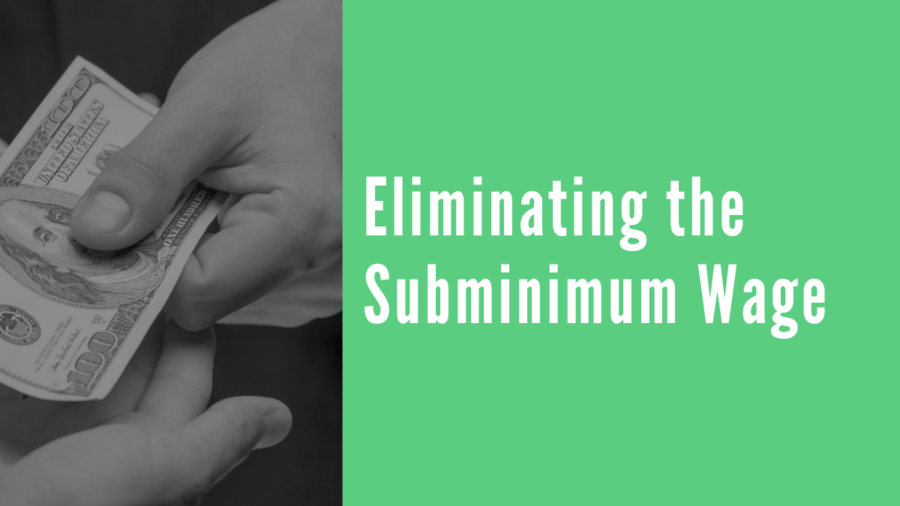
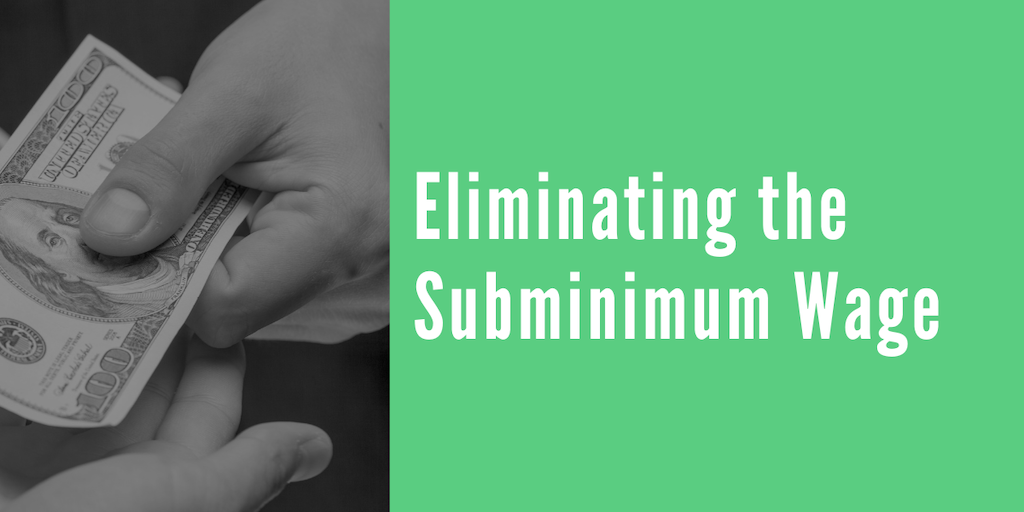 In 1938, the Fair Labor Standards Act created the federal minimum wage, but it included an exception for people with disabilities. The exception was intended to preserve employment opportunities for people, especially wounded veterans, who couldn’t keep up with “normal production” in factories. Now, 85 years later, thanks to this law, an estimated 53,000 workers in the United States earn less than minimum wage, sometimes pennies per hour, solely because they have a disability.
In 1938, the Fair Labor Standards Act created the federal minimum wage, but it included an exception for people with disabilities. The exception was intended to preserve employment opportunities for people, especially wounded veterans, who couldn’t keep up with “normal production” in factories. Now, 85 years later, thanks to this law, an estimated 53,000 workers in the United States earn less than minimum wage, sometimes pennies per hour, solely because they have a disability.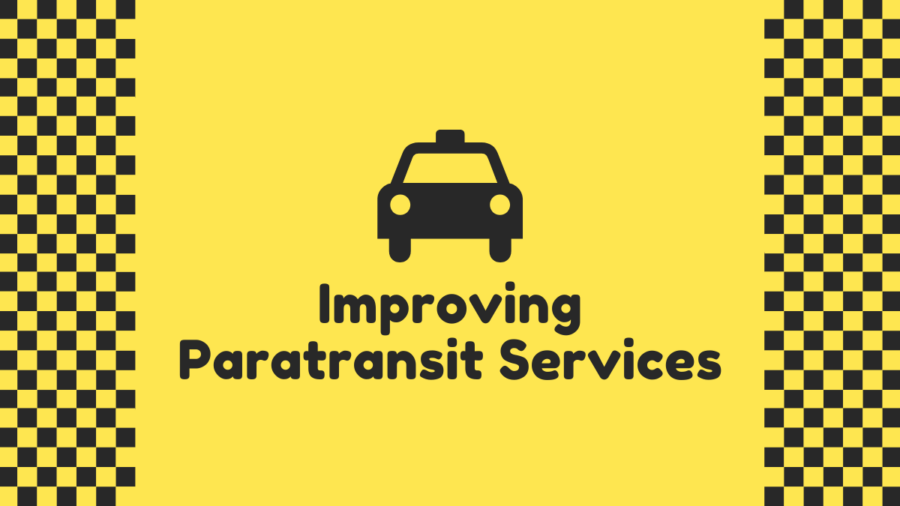
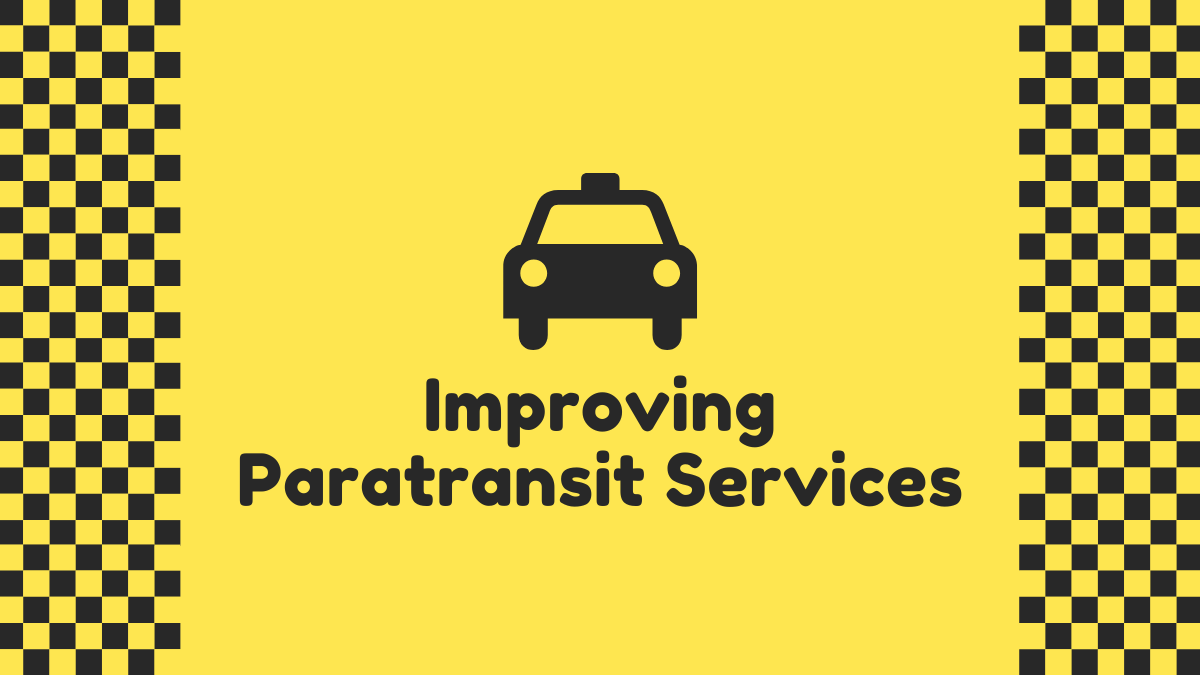 Many Americans with and without disabilities use fixed-route transportation like a city bus or commuter rail to reach their desired destination. However, people with disabilities may need additional transportation assistance to reach destinations beyond traditional public transportation routes. Public transit authorities provide paratransit services for eligible persons with disabilities if they cannot safely travel short distances to a bus stop. For instance, minibuses are used for these purposes. However, there can be issues with the timeliness of these services and the limited distance that is covered.
Many Americans with and without disabilities use fixed-route transportation like a city bus or commuter rail to reach their desired destination. However, people with disabilities may need additional transportation assistance to reach destinations beyond traditional public transportation routes. Public transit authorities provide paratransit services for eligible persons with disabilities if they cannot safely travel short distances to a bus stop. For instance, minibuses are used for these purposes. However, there can be issues with the timeliness of these services and the limited distance that is covered.

 Asian American and Native Hawaiian/Pacific Islander (AANHPI) students are the least likely of all races to receive special education services. According to the
Asian American and Native Hawaiian/Pacific Islander (AANHPI) students are the least likely of all races to receive special education services. According to the 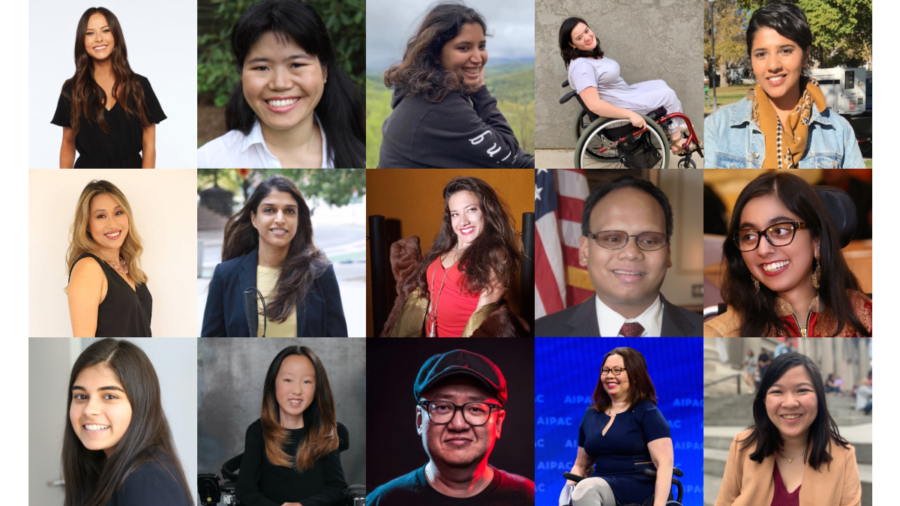
 The intersection of identity with disability uniquely affects people of all races. For Asian-Americans and Pacific Islanders (AAPI) this is compounded by the fact that AAPIs are a wildly diverse ethnic group and have an equally diverse range of experiences. With a population expected to surpass 40 million by 2060, and 1.3 million disabled, it is important to understand the intersection between AAPI identity and the disability experience. There is no better time to address these issues than in May while we observe AAPI Heritage Month. Historically AAPIs, especially AAPIs with disabilities, have been underrepresented in disability studies. Surveys on disability often lump this diverse group together as “Asian,” which includes 20 distinct nationalities in the US Census. Despite the size and vibrancy of the AAPI population, the visibility of AAPIs with disabilities remains low. Disclosure of disability is essential for access to services, and yet disclosure among AAPIs is lower than in other ethnic groups.
The intersection of identity with disability uniquely affects people of all races. For Asian-Americans and Pacific Islanders (AAPI) this is compounded by the fact that AAPIs are a wildly diverse ethnic group and have an equally diverse range of experiences. With a population expected to surpass 40 million by 2060, and 1.3 million disabled, it is important to understand the intersection between AAPI identity and the disability experience. There is no better time to address these issues than in May while we observe AAPI Heritage Month. Historically AAPIs, especially AAPIs with disabilities, have been underrepresented in disability studies. Surveys on disability often lump this diverse group together as “Asian,” which includes 20 distinct nationalities in the US Census. Despite the size and vibrancy of the AAPI population, the visibility of AAPIs with disabilities remains low. Disclosure of disability is essential for access to services, and yet disclosure among AAPIs is lower than in other ethnic groups.
 In this month’s partner spotlight, we look at the fantastic work the Asian Americans with Disabilities Initiative (AADI) is doing. AADI seeks to bring a haven for Asian Americans with disabilities online and in person.
In this month’s partner spotlight, we look at the fantastic work the Asian Americans with Disabilities Initiative (AADI) is doing. AADI seeks to bring a haven for Asian Americans with disabilities online and in person.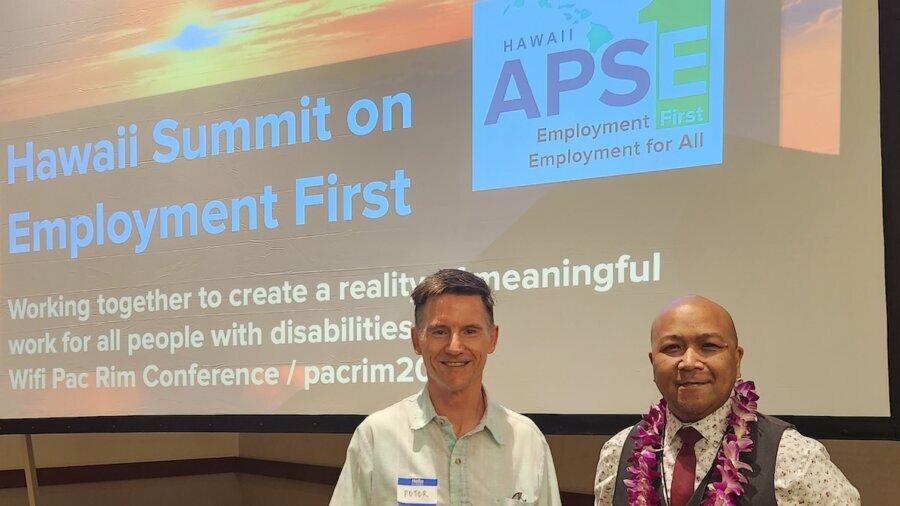
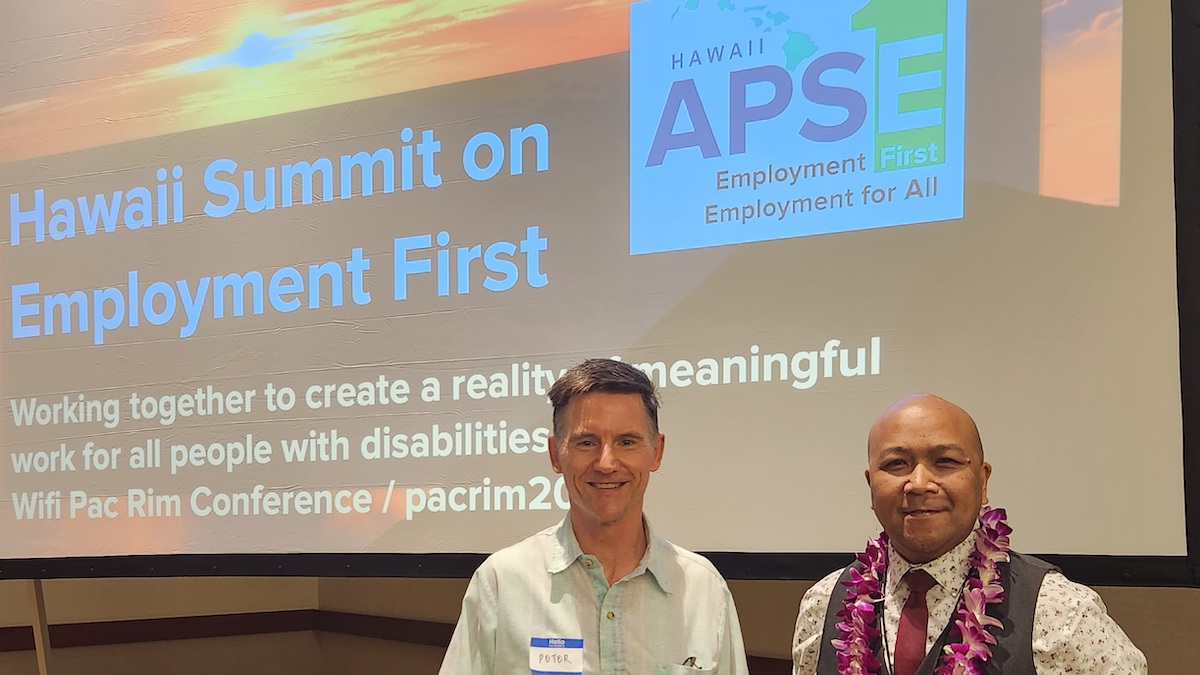

 Our nation’s workforce system is a crucial aspect of the economy. It consists of many organizations, laws, and programs that connect people to jobs. But one significant component of the modern workforce system is in need of reauthorization.
Our nation’s workforce system is a crucial aspect of the economy. It consists of many organizations, laws, and programs that connect people to jobs. But one significant component of the modern workforce system is in need of reauthorization.
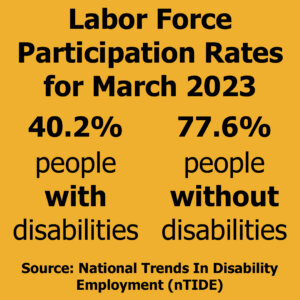 This month’s Data Corner again examines the tracking data of
This month’s Data Corner again examines the tracking data of 


